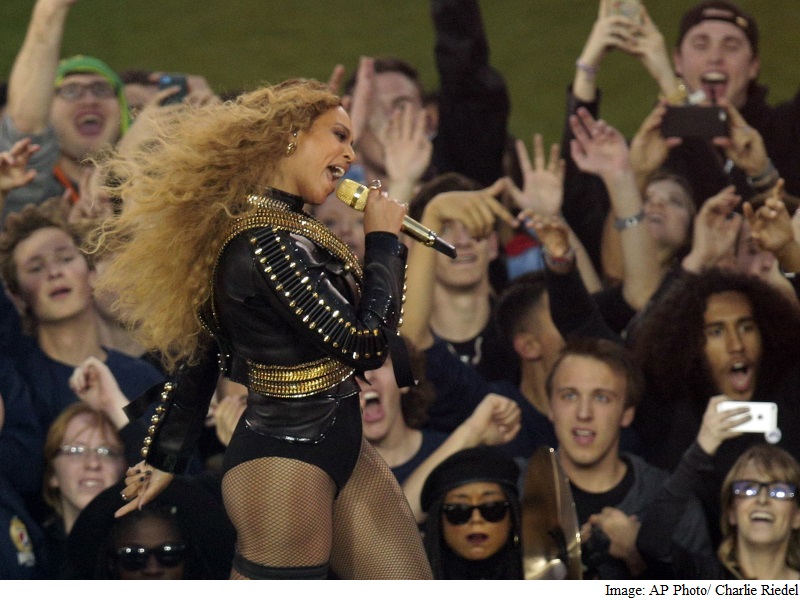- Home
- Internet
- Internet Features
- Why It Matters if Airbnb Paid Beyonce for That Facebook Plug
Why It Matters if Airbnb Paid Beyonce for That Facebook Plug

But one big question remains: Was Beyonce's enthusiasm bought and paid for?
Companies will shell out big bucks to get celebrities to hawk their products online - and an endorsement from Bey to the more than 64 million fans who "Like" her on Facebook would be a bargain at almost any price.
But neither Beyonce's PR reps nor Airbnb responded to multiple inquiries asking if she was compensated for the post. And if she was paid for the mention, or got something like a free rental in exchange, it may put Beyonce and Airbnb on the wrong side of the Federal Trade Commission.
The agency is responsible for cracking down on deceptive advertising - and part of that is ensuring that consumers know when someone is getting paid to promote a brand or product, including on social media.
Mary Engle, the FTC's associate director for advertising practices, couldn't comment on the possible situation with Beyonce and Airbnb. But generally speaking, she said, if someone is being compensated or paid for social media posts, that should be disclosed - even if it's with something as simple as including a #ad or #sponsored in the post.
"The overall idea is that the readers or viewers should be able to tell from the context of the communication if it is part of a promotion or advertising campaign," Engle explained. There are some cases, like television commercials, where it may be obvious that celebrities are getting paid for endorsements. But social media, she said, "tends to be more ambiguous" and that means it's all the more important to have clear disclosures.
There a little bit of a gray area in there: If a celebrity is a well-known spokesperson for a particular brand, it may be more reasonable to assume consumers know online posts about that brand are part of that paid role.
Still, overall, the FTC recommends disclosure because it can be hard to pin down if a significant proportion of a celeb's fans or followers know about the relationship between an endorser and an advertiser. And the agency has cracked down on similar activity in the past: In 2015, the FTC settled charges with an online entertainment network it alleged had paid "influencers" thousands of dollars to produce YouTube videos as part of a campaign promoting the Microsoft's Xbox One console, but failed to ensure the videos disclosed their sponsored nature.
Typically, the advertiser may ultimately bear "primary responsibility" for deceptive advertisements, but FTC investigations can scrutinize PR firm intermediaries and the actual endorser as well, Engle said.
So if Beyonce was paid to plug Airbnb on Facebook and the FTC decided to take action, the company would probably take most of the heat - but the singer may also get singed.
© 2016 The Washington Post
Get your daily dose of tech news, reviews, and insights, in under 80 characters on Gadgets 360 Turbo. Connect with fellow tech lovers on our Forum. Follow us on X, Facebook, WhatsApp, Threads and Google News for instant updates. Catch all the action on our YouTube channel.
Related Stories
- Samsung Galaxy Unpacked 2025
- ChatGPT
- Redmi Note 14 Pro+
- iPhone 16
- Apple Vision Pro
- Oneplus 12
- OnePlus Nord CE 3 Lite 5G
- iPhone 13
- Xiaomi 14 Pro
- Oppo Find N3
- Tecno Spark Go (2023)
- Realme V30
- Best Phones Under 25000
- Samsung Galaxy S24 Series
- Cryptocurrency
- iQoo 12
- Samsung Galaxy S24 Ultra
- Giottus
- Samsung Galaxy Z Flip 5
- Apple 'Scary Fast'
- Housefull 5
- GoPro Hero 12 Black Review
- Invincible Season 2
- JioGlass
- HD Ready TV
- Laptop Under 50000
- Smartwatch Under 10000
- Latest Mobile Phones
- Compare Phones
- OPPO A6v 5G
- OPPO A6i+ 5G
- Realme 16 5G
- Redmi Turbo 5
- Redmi Turbo 5 Max
- Moto G77
- Moto G67
- Realme P4 Power 5G
- HP HyperX Omen 15
- Acer Chromebook 311 (2026)
- Lenovo Idea Tab Plus
- Realme Pad 3
- HMD Watch P1
- HMD Watch X1
- Haier H5E Series
- Acerpure Nitro Z Series 100-inch QLED TV
- Asus ROG Ally
- Nintendo Switch Lite
- Haier 1.6 Ton 5 Star Inverter Split AC (HSU19G-MZAID5BN-INV)
- Haier 1.6 Ton 5 Star Inverter Split AC (HSU19G-MZAIM5BN-INV)

















